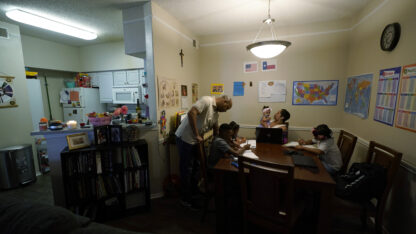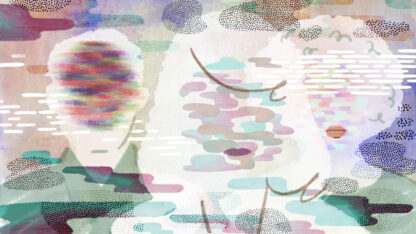Jewish students in metro Atlanta say antisemitism isn't as rare as you might think
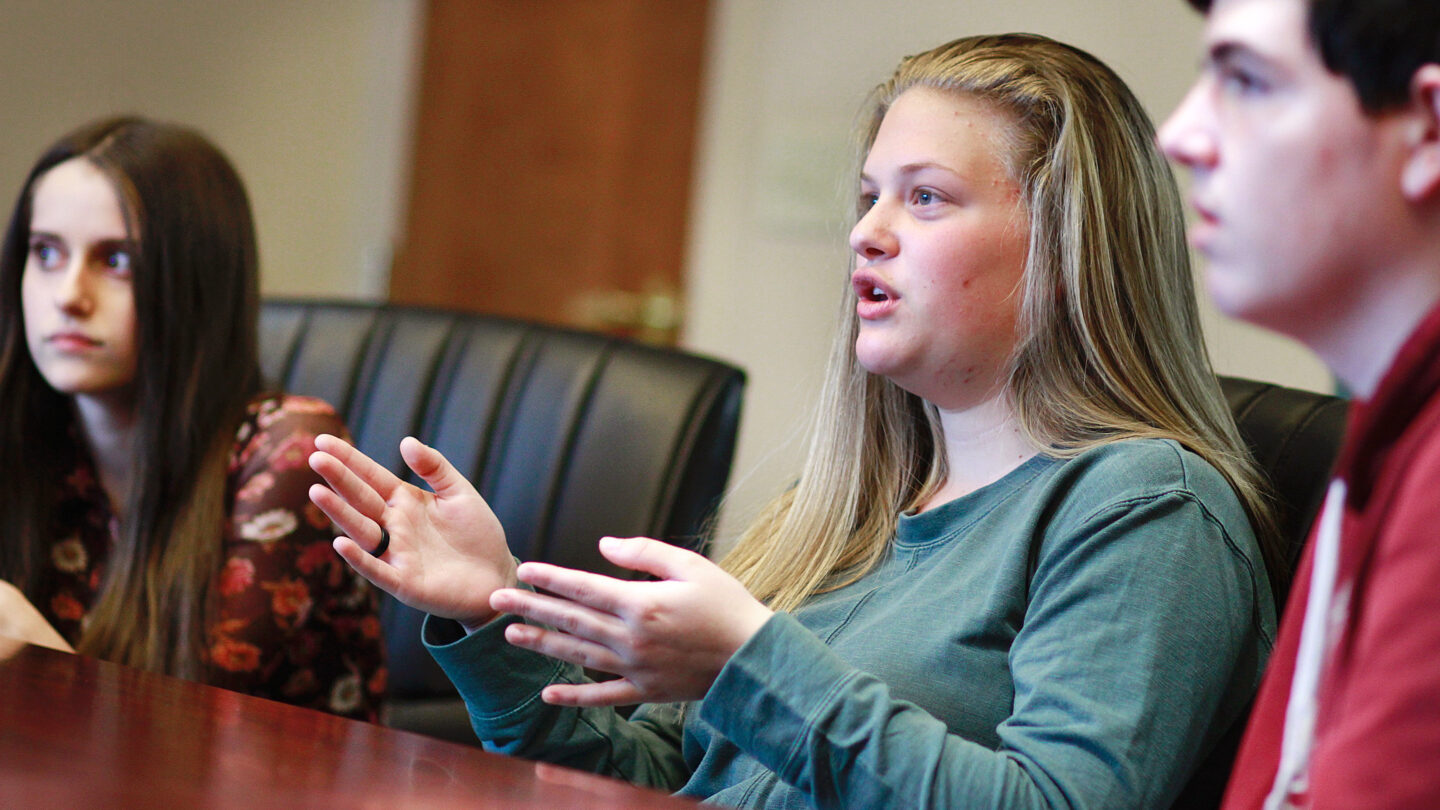
Antisemitic graffiti at two Cobb County high schools made national headlines last fall. The school district took disciplinary action against the students who drew swastikas and the words ‘Heil Hitler’ on the bathroom walls. The school board passed an antisemitism resolution soon afterward. But Jewish students at those schools say that’s done little to address the problem. WABE spoke with Lassiter sophomores Evan Singer and Hannah Levy and Pope freshman Lily Mosbacher about what it’s like to be Jewish in a predominantly Christian school district.
‘What do you mean it’s a holiday?’
“Our school doesn’t say Praise Jesus. But like, there’s a lot of underlying things that happen,” Hannah says. “Like calling it Christmas break. No one thinks about because, ‘Well, I celebrate Christmas. And my neighbor Nancy celebrates Christmas.’ But the Jews across the street don’t celebrate Christmas.”
Federal rules require schools to let students to miss class without penalty for religious holidays. But Lily says she often has to explain why she’s out.
“Even though it’s a Jewish holiday, not even all Jews take off for the most religious holidays,” she says. “So then when I leave, they’re like. ‘What do you mean this is a religious holiday?’”
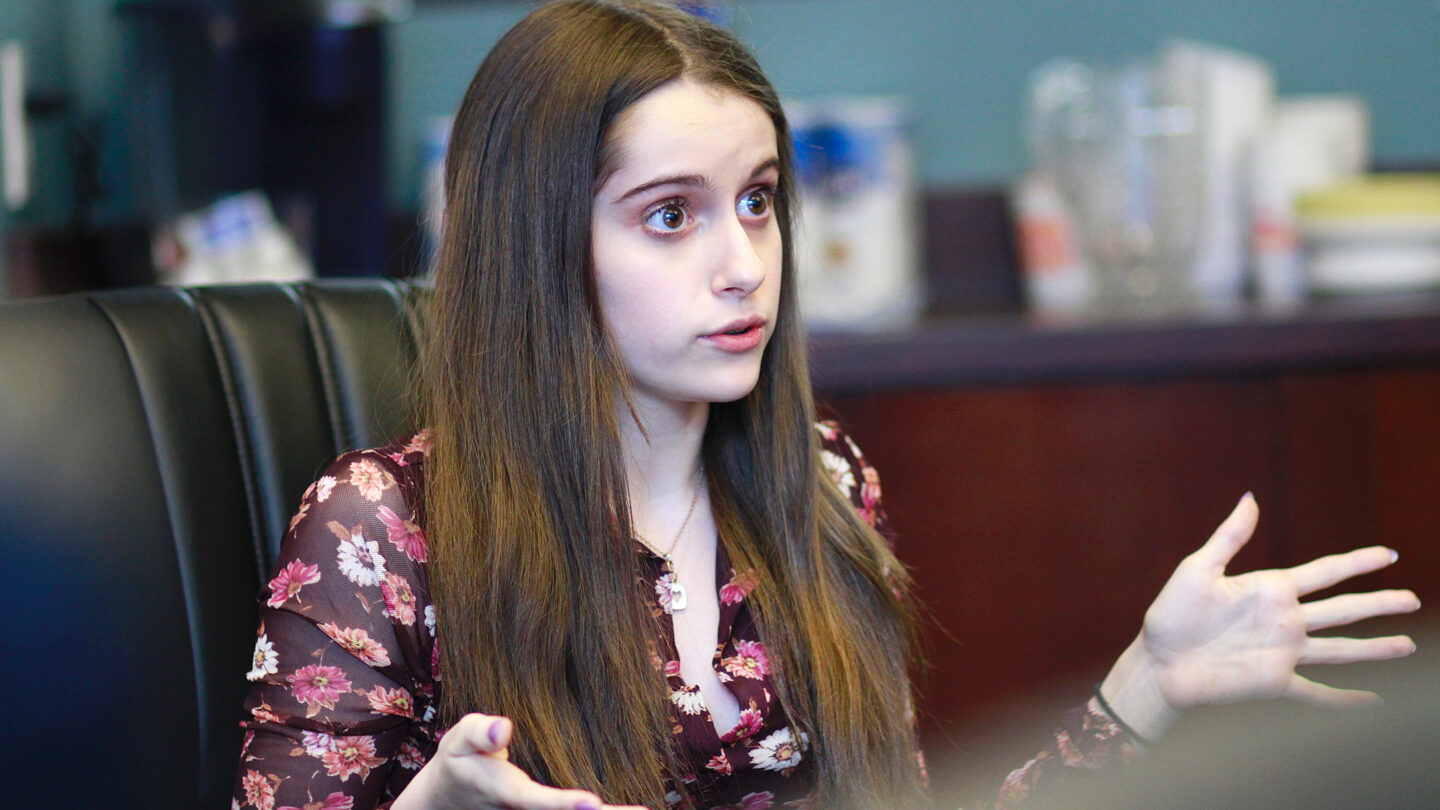
These students say they face tropes and stereotypes all the time. They say people feel free to comment on whether or not they “look Jewish.”
“For me, I look stereotypically Jewish: brown hair, brown eyes,” Lily says. “I go to temple a lot and when I tell people I’m Jewish they’re not surprised. But one of my best friends has blond hair and blue eyes and people would never know that she’s Jewish. People assume that you’re not and they will say things.”
Hannah says people aren’t shy about saying things to her either
“They’ll say it right to my face: ‘There’s no way you can be Jewish,’” Hannah says. “’You don’t look Jewish. You don’t sound Jewish. I don’t even know what that means. I speak Hebrew fluently. But I don’t sound any different than when I speak English.”
Evan runs into the same kind of thing when he’s out of school for Jewish holidays.
“[My non-Jewish friends will] just be like, ‘Where were you?’ And I’ll just be like, ‘It was a Jewish holiday.’ Like, ‘Oh, okay, not surprising,’ because I also have like…the dark hair, dark eyes,” Evan says. “They just assume like, ‘Oh, that tracks for you because you fit that profile.’”
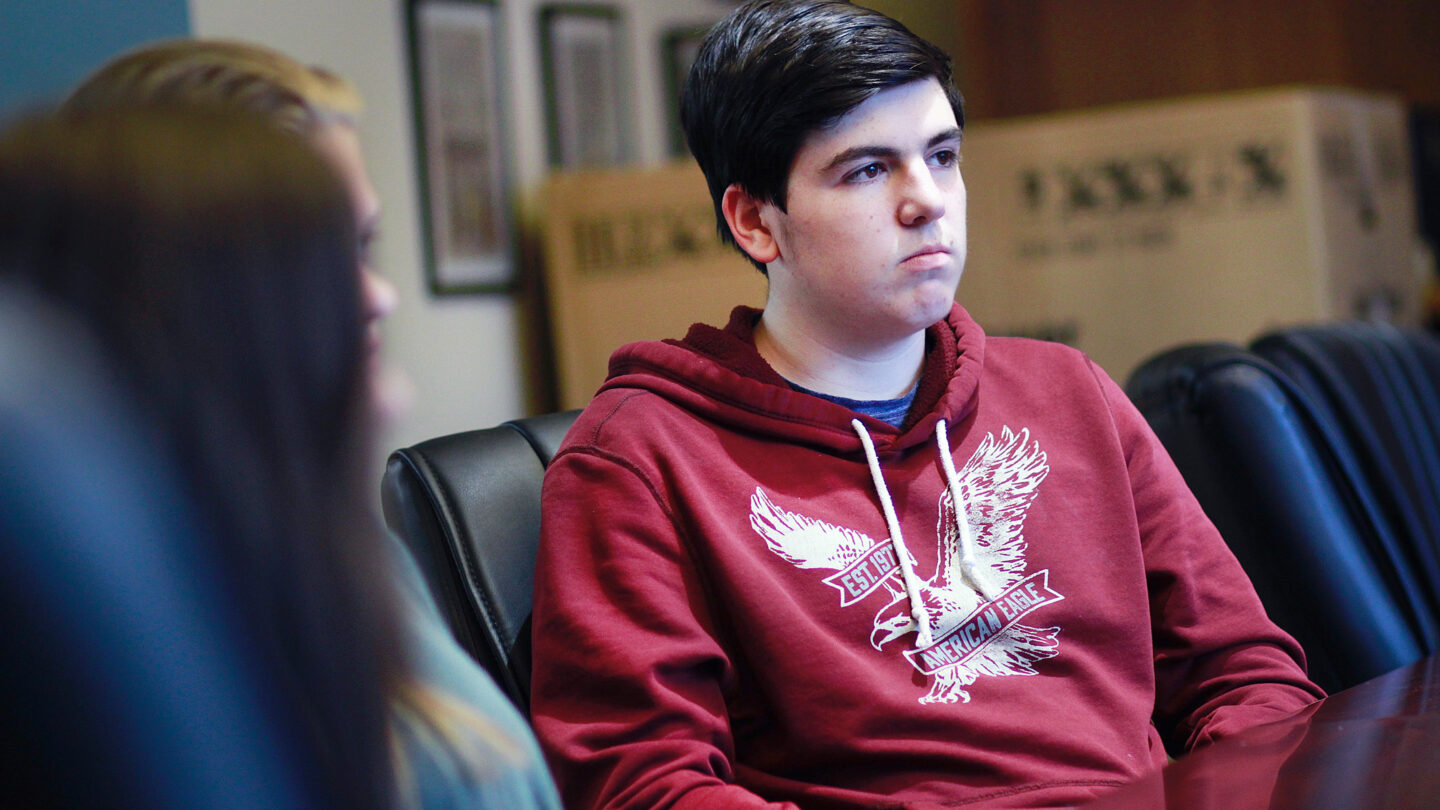
“They’ll say it right to my face: ‘There’s no way you can be Jewish. You don’t look Jewish. You don’t sound Jewish.'”
Cobb County high school student Hannah Levy
Antisemitism, the virus
Evan, Lily and Hannah joined other families at Temple Kol Emeth in Marietta on a recent Monday evening for a program run by a non-profit called Stand with Us. It teaches students and their parents how to recognize and call out antisemitism on high school and college campuses. Adam Blue is the organization’s associate director of high school education. During a session for parents, he compares antisemitism to something everyone’s familiar with now: a virus.
“As we know, viruses mutate,” he says. When we look at antisemitism, what often is called the world’s oldest hatred, we’re looking at something that is not clearly defined. Antisemitism is not A, B and C. Antisemitism is used in every generation as a form of Jew-hatred in whatever way we need to apply it.”
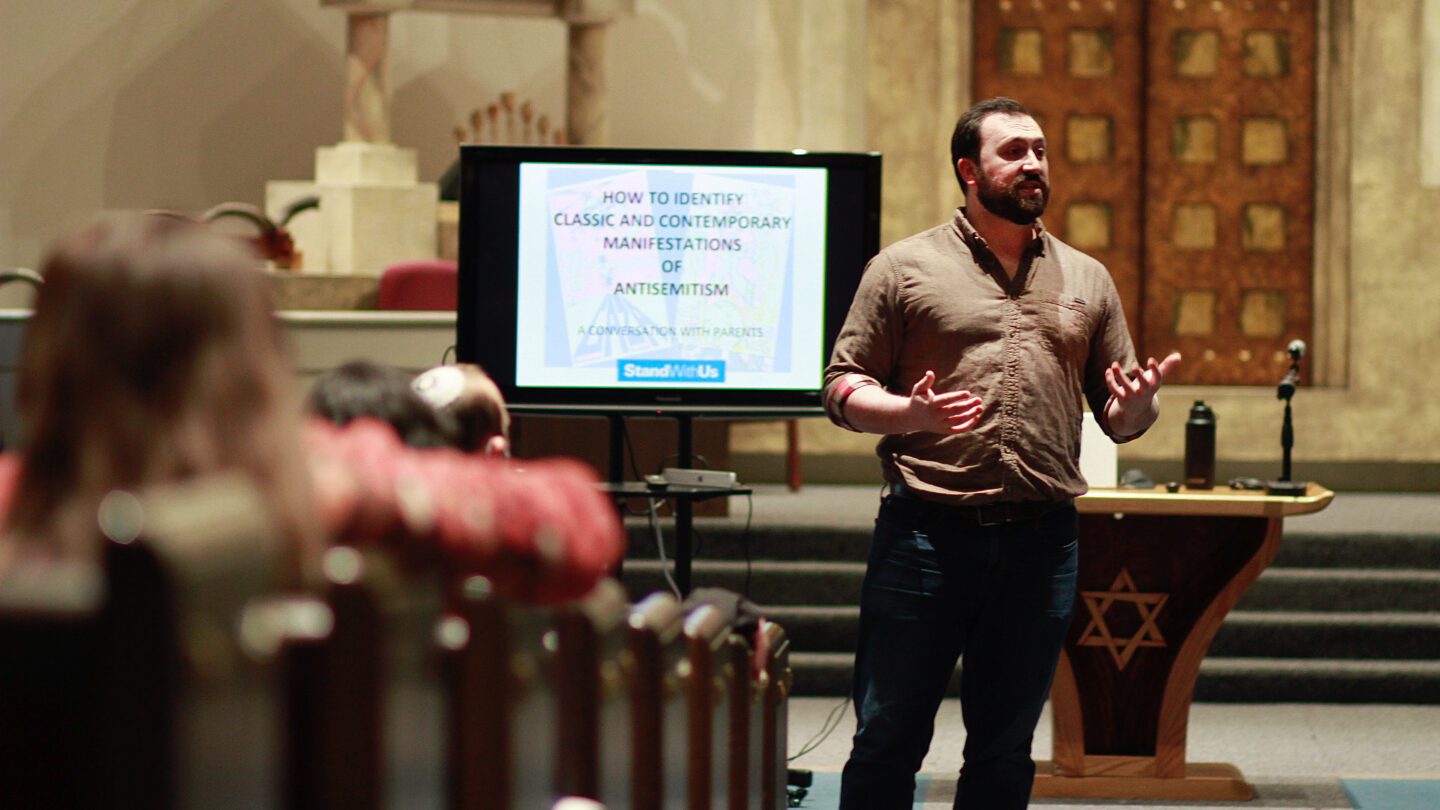
In Cobb recently, antisemitism has been applied via social media. At Pope and Lassiter high schools, students posted pictures of swastikas and the words ‘Heil Hitler’ drawn on bathroom walls. The students who did it said it was part of a social media challenge. Lily says the pictures spread quickly.
“When I first saw the Snapchat stories, I was definitely a little thrown back,” she says. “I was like, ‘What do you mean? Like, is this real?’ It took a moment to realize that it actually had happened because I was sitting in my sixth-period class and it was down the hall from me.”
A few students were involved in the antisemitic posts. One of them, who we’re referring to as John, has been working with Temple Kol Emeth, where Lily, Hannah and Evan belong. John has participated in service projects and came before the congregation to answer questions one night, including: why?
“I don’t really have a valid reason for that,” John says.
John says he and a friend were drawing vulgar words on the wall as part of the social media challenge. The more provocative posts are the most popular ones. Things escalated, John says and soon he and his friend were drawing swastikas and the words, ‘Heil Hitler.’
“We just assumed that we could just keep doing it without like getting caught since we had already drawn like a bunch of stuff and didn’t get caught,” John says. “We didn’t realize how bad the things we were drawing were and like the impacts those things like have on some people.”
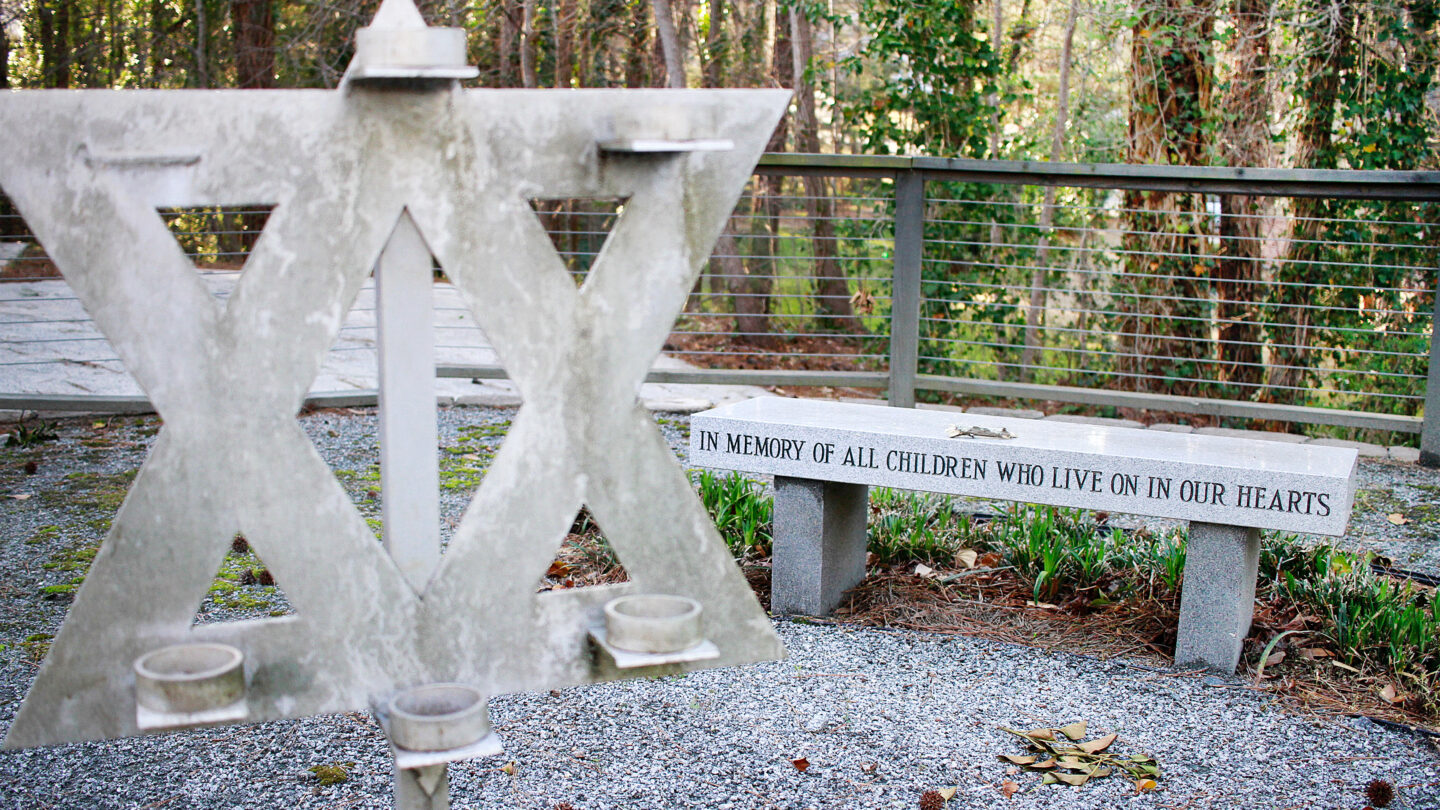
Ignorance vs. cruelty
Evan, Hannah and Lily believe John is sincere. They agree he acted out of ignorance rather than cruelty or antisemitism.
“There’s a fine line between like ignorance and lack of understanding and like actual hatred,” Evan says. “From what I can tell John did not do this because he genuinely hates the Jewish faith. He didn’t know what was going on what that meant. He did not actually like, mean anything towards Judaism. He just did it to like, go along with his friends, like for a dare maybe.”
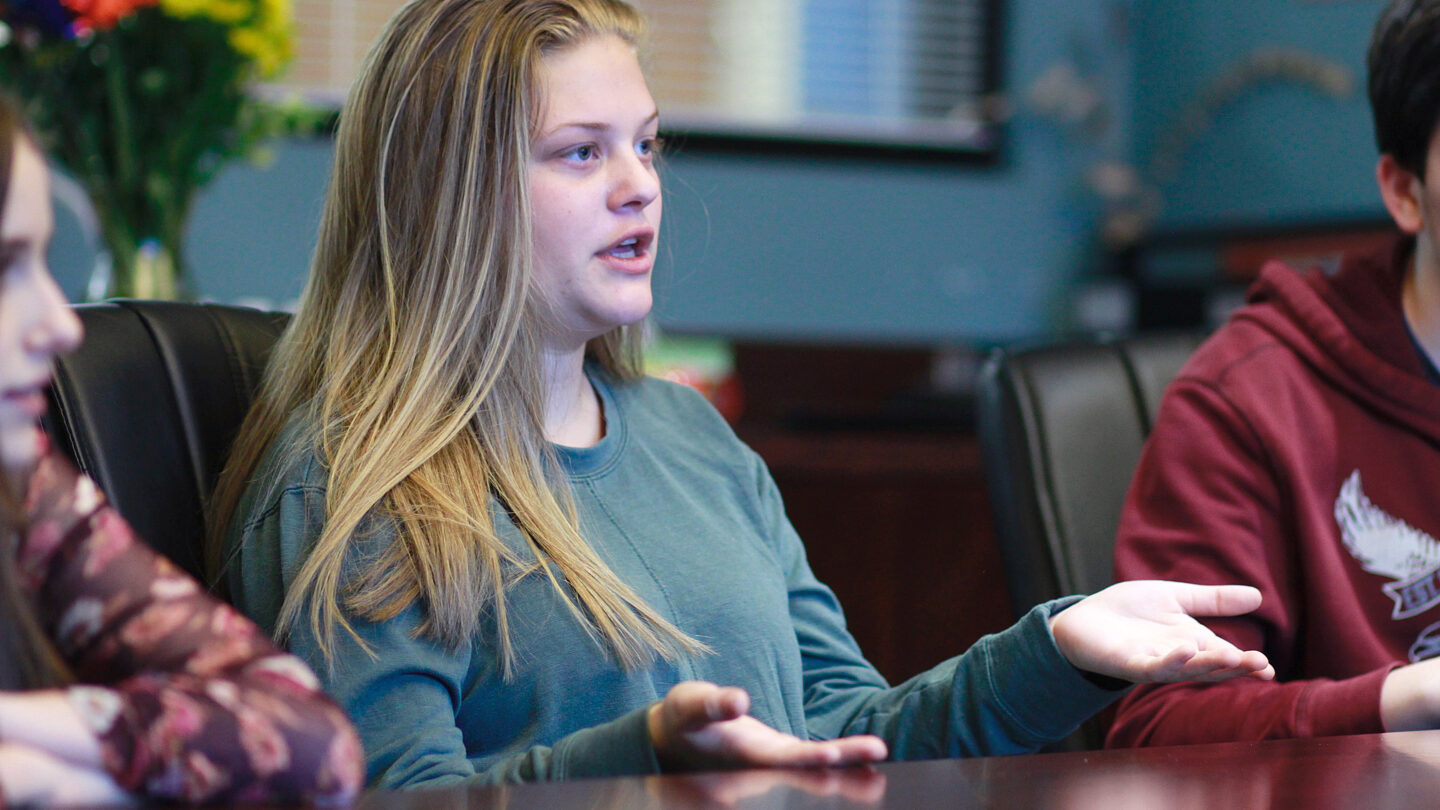
The school district has suspended John for two semesters. He attends an online alternative school for a few hours a day. He says he’s tried to educate himself since the incident by attending Atlanta’s Bremen Jewish Heritage Museum with a Holocaust survivor. John says the more he learned, the worse he felt about what he’d done.
“If I knew how bad those symbols were, I just would have never even thought about like drawing them or even taking part in anything,” he says.
Georgia requires schools to teach the Holocaust. It’s introduced in fifth grade, reinforced in sixth and seventh and covered again in World History in high school. John says he didn’t remember much of what he learned. He’s trying to make up for that now.
Hannah says that’s significant.
“John said there was another one or two kids involved, I believe,” Hannah says. “But he’s the only one who’s here trying to make amends.”
Education and outreach
Lily, Hannah and Evan all agree that schools need to teach the Holocaust and events that led up to it in greater depth. For them, the details aren’t shocking. They grew up learning about it and say they’re not surprised to see pictures in class of the Holocaust’s atrocities.
“Other Christians in my classes, they’ve been horrified while I’m just sitting there observing because I’ve already seen these [pictures],” Evan says. “They’re always coming up to me and asking, like, ‘Dude, are you okay? Because like I know you’re Jewish and stuff.’ I said, ‘Yes, I am. Because as a result of me being Jewish, I’ve seen these for a long time.’”
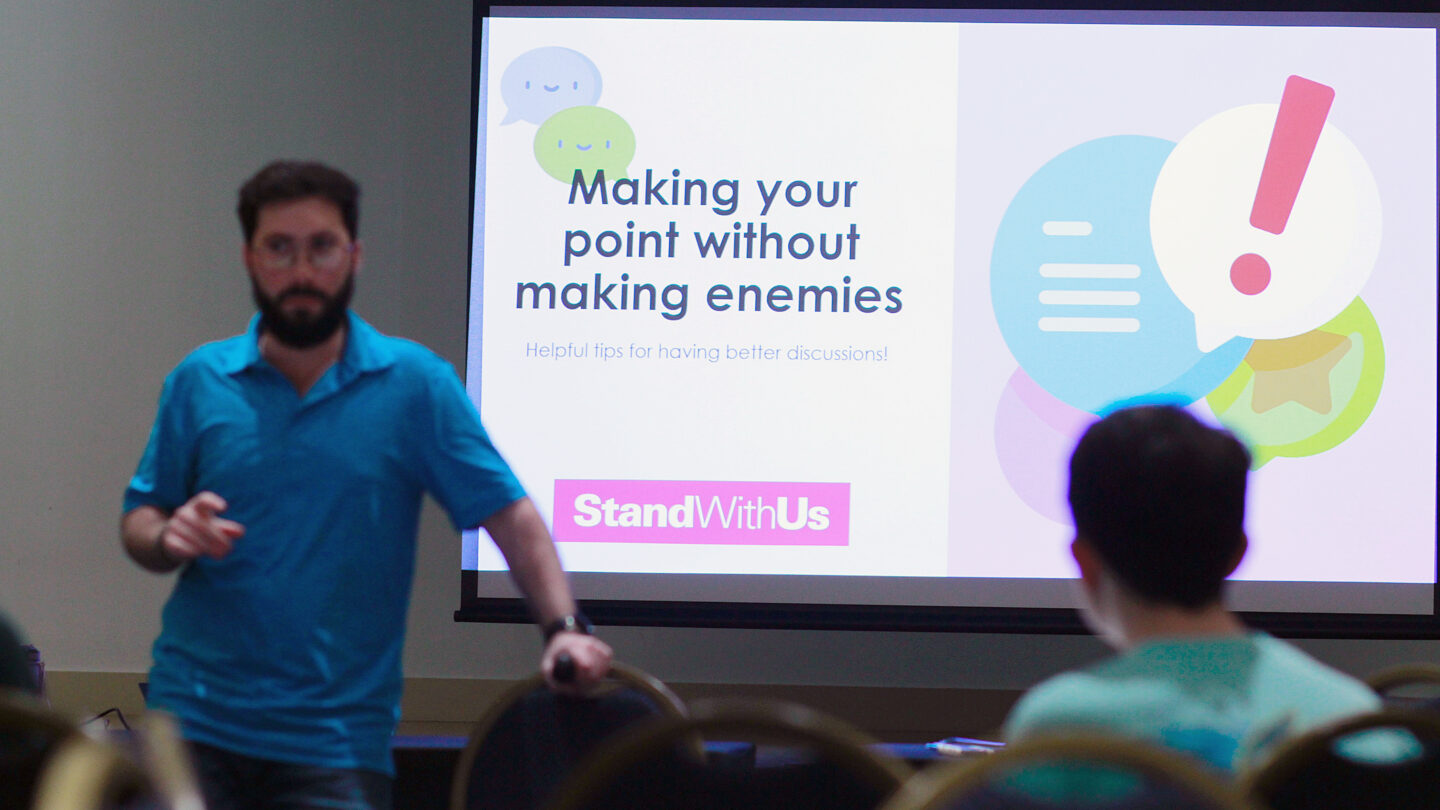
According to the Anti-Defamation League, antisemitic incidents in the U.S. reached an all-time high in 2019. Students at an East Cobb middle school were also disciplined last month posting pictures on social media of students wearing armbands with swastikas on them and demonstrating the Nazi salute.
In June the Cobb County school board banned Critical Race Theory and the Pulitzer Prize-winning “1619 Project” from being taught in the district. Shortly afterward, the district dropped an ADL program called No Place for Hate, which focused on inclusion. Some community members criticized that decision in the wake of the antisemitic graffiti at Pope and Lassiter.
Lily, Hannah and Evan say increasing awareness is critical to ensuring antisemitism doesn’t become normalized. That’s what Stand With Us is also trying to achieve: developing allies so that Jewish people, who make up two percent of the population in metro Atlanta, don’t have to do the work alone.

